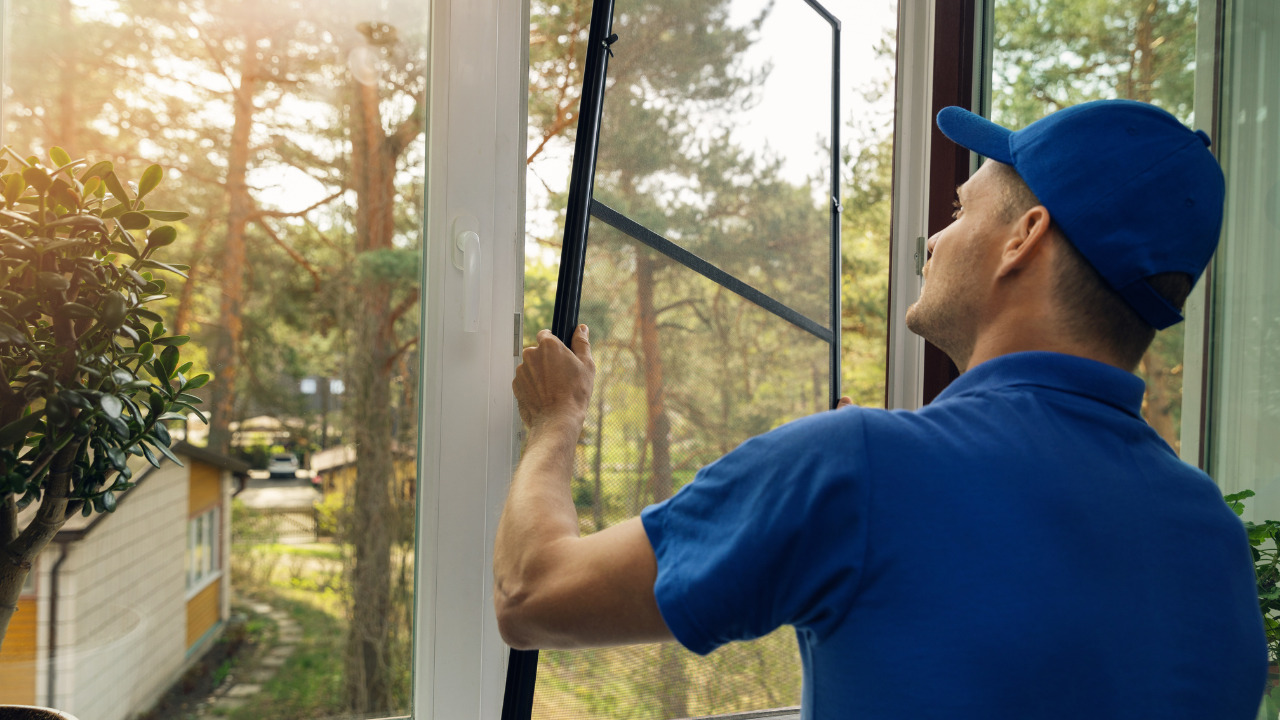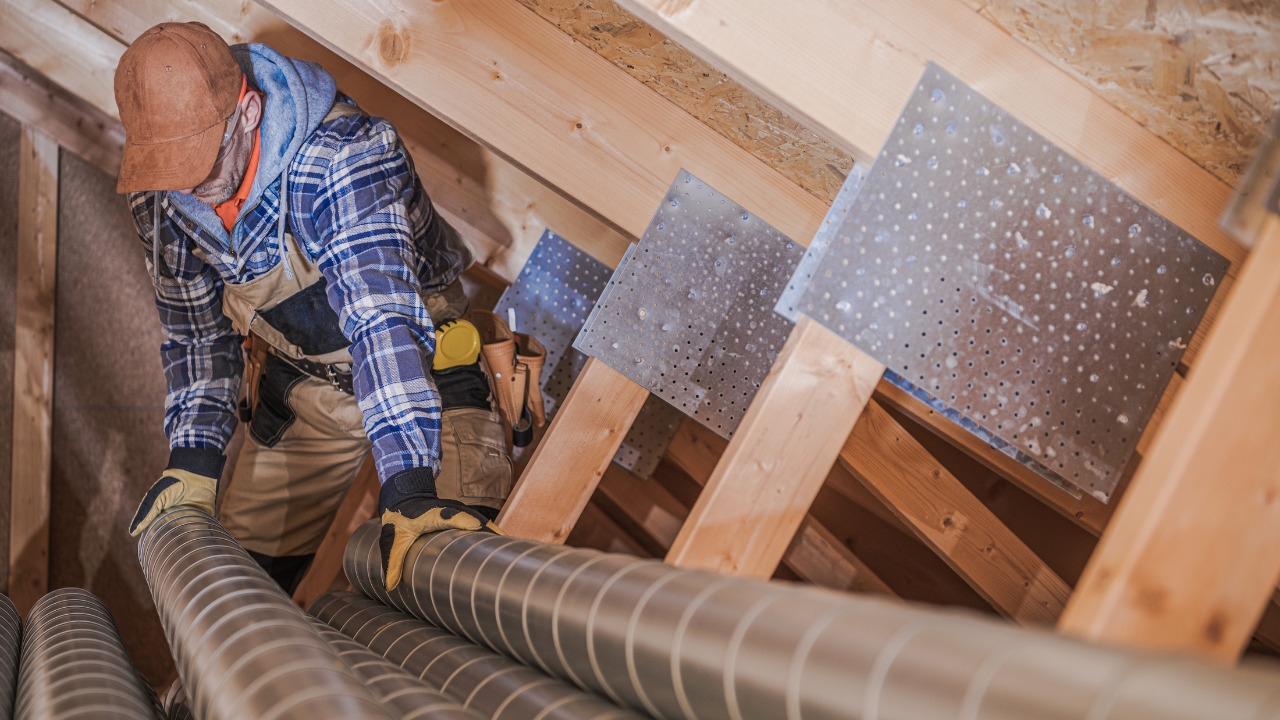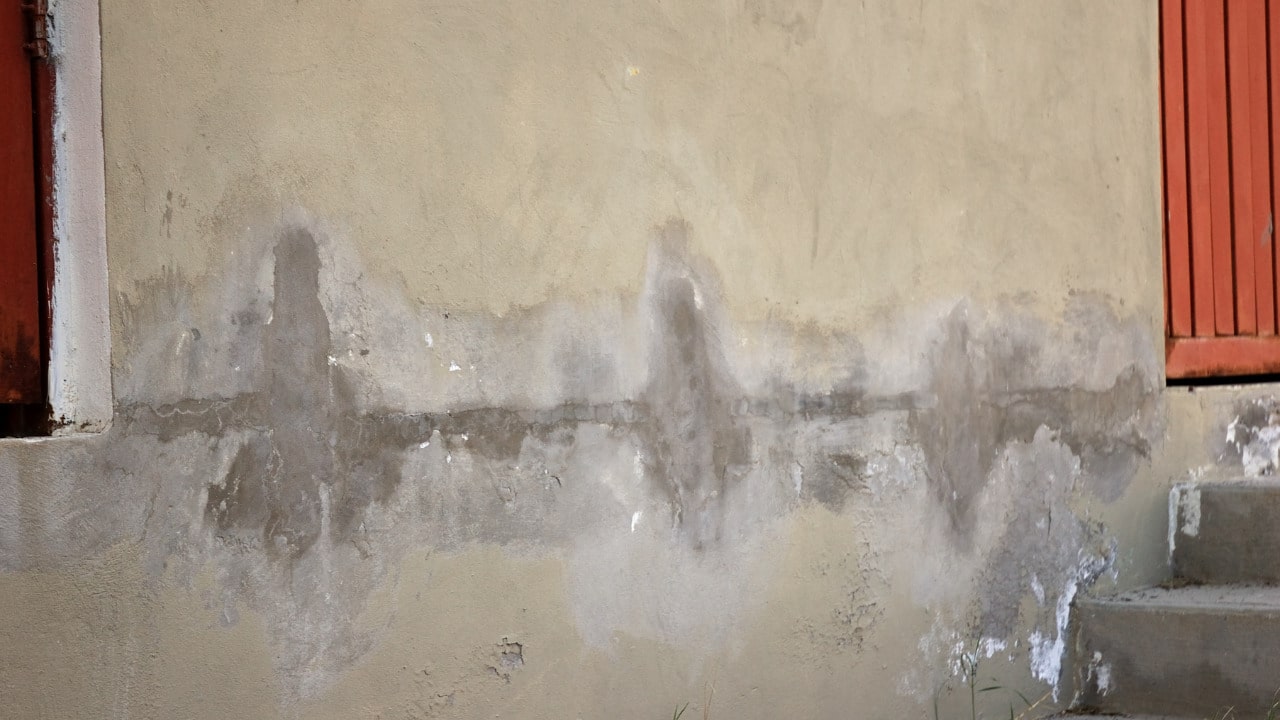Basements are renowned for accumulating moisture and emitting a musty odor. However, this is due to the lack of windows, resulting in inadequate ventilation. You can reclaim your basement area by following the steps below to ensure it isn’t growing mold or mildew, which could damage your health or the structure itself.
Your basement most likely already serves as a storage area and a location for essential services and utilities in your home. However, like most homeowners, you’d prefer to complete your basement and add to your living area below grade.
However, if the space smells musty or is infested with dampness, mold, or radon, your basement remodeling job will be hampered. Before finishing the basement, venting is a critical first step in addressing these difficulties.
Table of Contents
Why Do You Need To Ventilate The Basement?
The air may be particularly damp if you’ve ever felt smothered after entering your basement. Rain, laundry, cooking, moisture seeping through the concrete, and other factors contribute to this. The foundation of your basement can be weakened and damaged by humid air.
Furthermore, it might lead to mold growth, which you must prevent at all costs. If left untreated, mold can cause serious health problems, decay, and destroy your basement and its contents. Aside from that, improper basement air circulation systems might lead to radon gas build-up, which you should avoid.
A poorly ventilated basement can cause issues that range from annoyance to health risks. A musty, smelly basement may be all it takes to convert your nicely finished basement into a place where few people want to go. Although not all basement mold is dangerous, it is a crucial contributor to a musty odor.
Ventilate The Basement Naturally
Natural ventilation utilizes natural air currents, although this method is only effective in basements with strategically positioned windows that can open and close. While the natural method saves energy, it also necessitates more effort.
To prevent burglars from entering the basement, windows must be opened regularly and closed during rain or at night. Windows should be placed across the basement space opposite each other for the best results, following the natural draughts of the basement.
In case of unusual wetness, you must install the fans and dehumidifiers in the basement.
Install Dehumidifiers
Most basements are humid, making them unpleasant and difficult to control with fans alone. You’ll need to invest in a basement dehumidifier to dry the air. This can eliminate any moisture buildup in your basement and create a comfortable climate.
Open windows and doors to let in fresh air once the dehumidifier has finished operating. Also, be certain you know the ideal size for your basement. Usually, a basement needs an industrial-sized unit, especially if there are a lot of leaks and dampness below.
Install Or Open The Windows
Increase the size of your existing windows or add more to your basement. The wood wall framing technology can be used to install windows in shallow basements. Cutting into the masonry foundation for deeper basements is a complex project that requires the help of a contractor.
Open windows and leave them open as much as possible when the weather permits. Because ground-level windows can send leaves and debris into the basement, install screens and window wells. Remove the window well cover if your window well has one to allow air to flow through the window.
Go For A Mixed Ventilation Method
Installing a combination of negative and positive pressure ventilation is another option. By venting stale and damp air outside the house, you will pump fresh air into the basement and remove it. You enjoy the benefits of entirely clean and fresh air while the damp and stale basement air is kept out of the rest of your house.
Run Advanced HVAC System Ductwork
Run the HVAC system ducting into the basement for air conditioning and heating if you’re remodeling your basement. Make sure the basement has an air return duct so that air can be pulled out and recirculated. Use high-quality HEPA filters to keep dust and pollen out of the HVAC system.
Install an HRV or heat recovery ventilator if you have a radon problem. This equipment, also known as an air-to-air heat exchanger, brings outside air into the basement.
The HRV heats the incoming outdoor air to maintain the temperature in the basement by using ejected warm or cool air. HRVs are highly successful at removing radon gas and for all other types of basement ventilation.
Mechanical Ventilation
In some circumstances, the natural method may not ensure a basement is adequately ventilated. In these situations, you can surely go for mechanical ventilation.
Mechanized systems may include humidity sensors, so you won’t have to watch the situation in your basement because the system will self-regulate. On the other hand, mechanical solutions are frequently more expensive to install.
Install Vents On The Basement Doors
Installing vents in or above the basement door is another option for air to enter the basement if you don’t like the notion of always leaving your basement door open.
This allows air from the main section of the home to enter the basement and act as an escape point for wet and stale basement air. Remember that this will require a fresh air supply vent in the basement to function correctly. Installing vents near the door and using an exhaust fan together can boost the efficiency of both strategies.
Vents cannot permanently be installed above the door due to the construction or arrangement of your home. In this scenario, you might consider putting them on the wall adjacent to the door. Just make sure it’s a load-bearing wall before cutting holes in it.
Improve Air Quality With Appropriate Ventilation
You can benefit from fresher, cleaner air and a cozier atmosphere below by ventilating your basement. Try using one of the best home air purifiers with portable ventilation if you’re experiencing problems in other parts of your house. To ensure that the air you breathe contains fewer toxins, these devices can also help with indoor air quality.
Purchasing an air purifier might be a smart move if you want to keep the air in your basement moving. A room’s air is drawn into air purifiers, passing it through several filters. These filters remove germs, dust, and mold spores.
After that, it repeats the cycle by pushing clean, fresh air into the space. Also, installing an air filter in your basement can stop mold spores from adhering to any surface. Thus, consider buying an air purifier if your basement has sluggish and stale air but low humidity.
Frequently Asked Questions
Do I really need to ventilate my basement?
Yes, The basement is part of a home most likely to experience dampness, moisture issues, and mold growth. The secret to preventing smells and water damage is proper ventilation.
What is the best ventilation option for the basement?
Just let some fresh air inside by opening your windows and doors. Consider adding windows to your basement if it is windowless; the more windows you add, the better the ventilation will be. Windows are a crucial part of ventilation, even though the process may be expensive.
Do vents make the basement cool in the winter season?
The mechanism expels heated air while circulating cool air through the vents. Consequently, if there aren’t enough vents in your home, ventilation will suffer, making your space hotter. Older homes with blocked air vents tend to have the issue more frequently.
Final Thoughts
Depending on the structure of your basement, venting might be as simple as opening windows or as involved as building a new HVAC system. In any case, proper ventilation is essential to avoid damage and mold growth.
Hopefully, after reading this advice on ventilating a basement, you now understand why basement ventilation improves air quality and comfort. You may enjoy cleaner air and a more comfortable environment downstairs by ventilating your basement.












